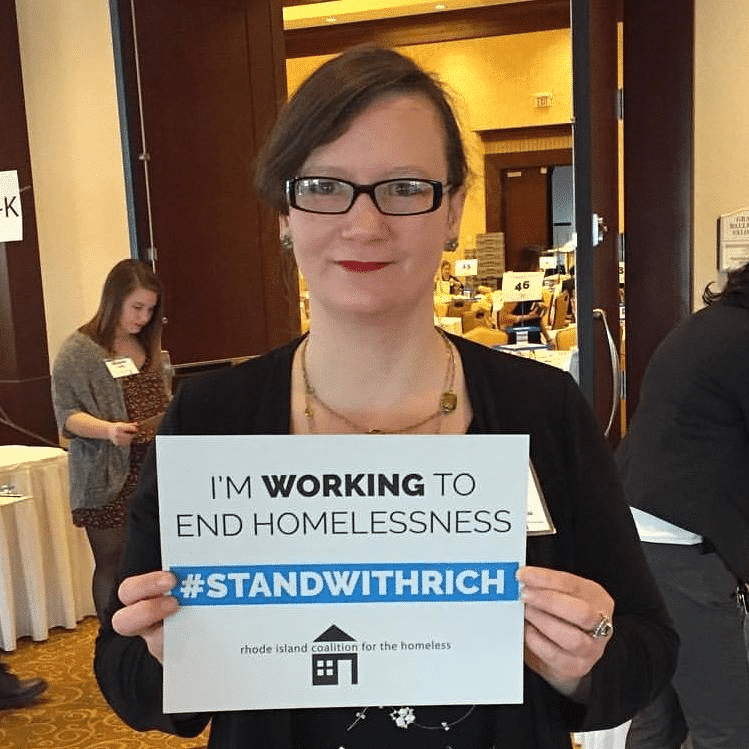Help to advocate for children: Pass the voluntary extension of care act
On Thursday Night, February 1, 2018, the Rhode Island State Senate Committee on Judiciary will hear testimony for Senate Bill 2022, which will allow for voluntary extension of foster care services until the age of 21. This bill would help pay for housing, healthcare, tuition and other expenses for young adults ages 18-21 who have been in the state’s care
January 30, 2018, 11:40 pm
By Susan Walker
On Thursday Night, February 1, 2018, the Rhode Island State Senate Committee on Judiciary will hear testimony for Senate Bill 2022, which will allow for voluntary extension of foster care services until the age of 21. This bill would help pay for housing, healthcare, tuition and other expenses for young adults ages 18-21 who have been in the state’s care through the Department of Children, Youth and Families (DCYF). DCYF Director Trista Piccola has expressed a need for champions to shepherd this bill forward. Calling all shepherds: one of Rhode Island’s most vulnerable populations needs your voice. Anyone who works with fostered and disadvantaged youth, or who knows someone who has experienced foster care should testify.
Homelessness and history with foster care are closely correlated among young adults and unaccompanied minors. Voices of Youth Count (VoYC), an intensive research undertaking by Chapin Hall at University of Chicago, recently published the most comprehensive assessment of the national prevalence of youth homelessness to date. One third of youth experiencing homelessness, which includes youth who regularly couch surf due to lack of stable housing, had experience with foster care, in a representative national sample. In July of 2017, Home to Hope, a youth outreach and advocacy organization working out of Rhode Island Coalition for the Homeless, conducted a Youth Count, in partnership with Youth Pride of Rhode Island, Foster Forward, Adoption Rhode Island and many other local human services agencies.
This group of professionals and volunteers teamed up to gather data on adults age 18-24 and unaccompanied minors, in a pilot attempt to assess the prevalence of youth homelessness in Rhode Island. While the count was by no means complete, the data gathered was highly reflective of national trends. Like the national assessment, one third of this sample of homeless and housing unstable young adults had a history with foster care. Foster care history details were not collected, so it cannot be assumed that this legislation could help this entire group. The legislation would likely help a portion of young adults make more successful transitions to adulthood though. The bill is targeted at youth who are actively fostered when they turn 18. The United States Interagency Council on Homelessness has called for an end to youth homelessness by 2020. This funding stream could play an essential role in better preparing some Rhode Island youth for the responsibilities of adulthood, and is essential for Rhode Island to meet the national goal.
The body research findings on the intersection of foster care and homelessness has grown more robust with the publications of a few key recent studies. In Washington State, integrated human services data were used to follow up with a cohort of 1202 young adults who exited foster care. Odds of homelessness were doubled for youth who were African American, or parents. Multiple foster care placements, disrupted adoptions, and experiences with juvenile justice also increased risk of homelessness. A study of 895 youth exiting foster care in New York City found that provision of supportive housing improved housing stability and decreased risk of sexually transmitted disease. While not youth-specific, over 25,000 participants provided data for the 100,000 Homes initiative. In this sample, history of foster care was associated with increased risk for unsheltered homelessness, and unsheltered homelessness was associated having one or more mortality risk factors.
Most importantly, human beings are represented by these statistics. An unknowable amount of suffering is implicit in these analyses. Instability in childhood predicts instability in adulthood. The same can be said for poverty and victimization. LGBTQ+ and queer/trans/non-binary children are disproportionately represented both in foster care as children and in homelessness as adults, and this relationship implies unfathomable pain. This group of children approaching adulthood cannot advocate for themselves. We have to advocate for them.
Please speak at Thursday night’s hearing, and contact your state representatives.






